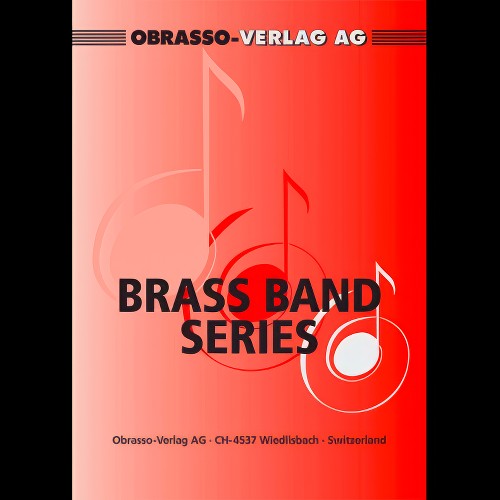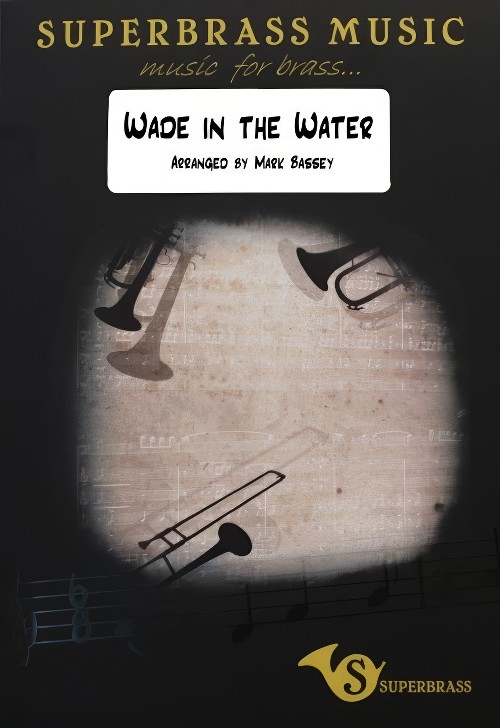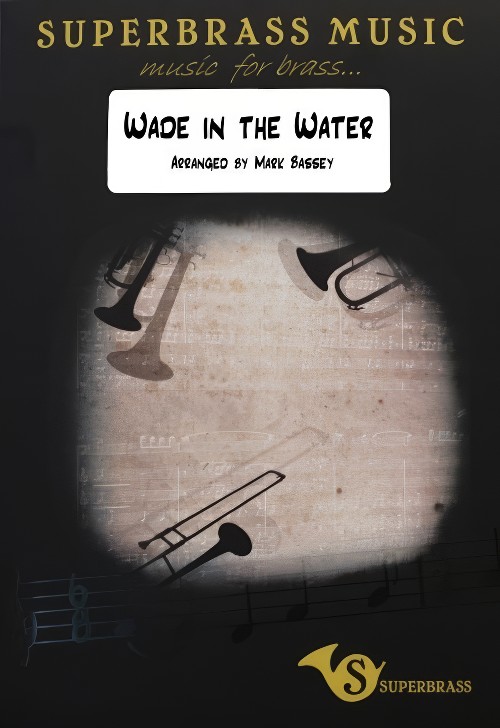-
 £54.20
£54.20VOLUNTARY ON TWO CHRISTMAS CAROLS (Brass Band) - Freeh, Mark
Includes: Ding, Dong, Merrily on High; Angels, From the Realms of Glory. Grade: Medium.
Estimated dispatch 7-14 working days
-
 £60.99
£60.99Vom Himmel Hoch, O Englein Kommt (Brass Band - Score and Parts) - De Haan, Jan
The German Christmas song Von Himmel hoch, O Englein kommt is one of the oldest known German carols, with the earliest versions, also known as Susani, going back to the 14th century. This exceptional arrangement by Jan de Haan works extremely well for brass band and will make an ideal work for any Christmas concert.Duration: 3:00
Estimated dispatch 7-14 working days
-
 £50.00
£50.00 -
 £60.99
£60.99Voulez Vous (Brass Band - Score and Parts) - Waignein, Andre
Duration: 4.30
Estimated dispatch 7-14 working days
-
 £64.00
£64.00 -
 £42.70
£42.70Waagabunden (Brass Band - Score and Parts) - Walter, Christoph - Smith, Sandy
Marchcard size
Estimated dispatch 7-14 working days
-
 £38.00
£38.00Wade in the Water (Bass Trombone Solo with Brass Band - Score and Parts) - Bassey, Mark
A Bass Trombone feature, "Wade in the Water" is a Negro Spiritual. The song relates to both the old and new testaments and reflects the Israelites escape out of Egypt, There is a popular belief that Wade in the Water contained explicit instructions to fugitive slaves on how to avoid capture. In this arrangement, Mark Bassey has been influenced by Norman Symmons fine arrangement for the Johnny Griffin orchestra and was recorded by Superbrass on their "Brass Taps" CD with Andy Wood as soloist. Duration: 5.00. Suitable for 2nd Section Bands and above.
Estimated dispatch 7-14 working days
-
 £29.95
£29.95Wade In The Water (Brass Band - Score and Parts) - Ballantine, Leonard
Wade in the Water is a Negro Spiritual made popular in 1962 by the Ramsey Lewis Trio. Further versions followed in 1968 by Big Mama Thornton and in 1997 by Eva Cassidy. The song is thought to be a coded message for slaves escaping to freedom and tells the fugitive to walk in the water, instead of on the land, where tracking dogs cannot follow human scent. This version for brass band is in swing style.
Estimated dispatch 7-14 working days
-
 £14.95
£14.95Wade In The Water (Brass Band - Score only) - Ballantine, Leonard
Wade in the Water is a Negro Spiritual made popular in 1962 by the Ramsey Lewis Trio. Further versions followed in 1968 by Big Mama Thornton and in 1997 by Eva Cassidy. The song is thought to be a coded message for slaves escaping to freedom and tells the fugitive to walk in the water, instead of on the land, where tracking dogs cannot follow human scent. This version for brass band is in swing style.
Estimated dispatch 7-14 working days
-
 £38.00
£38.00Wade in the Water (Euphonium Solo with Brass Band - Score and Parts) - Bassey, Mark
A Euphonium feature, "Wade in the Water" is a Negro Spiritual. The song relates to both the old and new testaments and reflects the Israelites escape out of Egypt, There is a popular belief that Wade in the Water contained explicit instructions to fugitive slaves on how to avoid capture. In this arrangement, Mark Bassey has been influenced by Norman Symmons fine arrangement for the Johnny Griffin orchestra and was recorded by Superbrass on their "Brass Taps" CD with Andy Wood as soloist. Duration: 5.00. Suitable for 2nd Section Bands and above.
Estimated dispatch 7-14 working days
Searching for Wind Band Music? Visit the Wind Band Music Shop

Sign-up to our mailing list for the latest Brass Band music releases & special offers.
Tel: (07852) 519 763 | International: +44 785 251 9763 | Email: [email protected]
Festive Holiday Closure
We are now closed for the festive holidays. Orders placed during this time will be processed when we re-open on Tuesday 6 January.
Thank you for your custom and continued support. We wish you a very Merry Christmas and a Happy New Year.
We look forward to welcoming you back in the New Year.
Use the search box below to search for music for
Brass Band | Brass Ensemble | Junior Band | Flexi Band | Solos with Piano | Practice & Solo Books
Brass Band | Brass Ensemble | Junior Band | Flexi Band | Solos with Piano | Practice & Solo Books